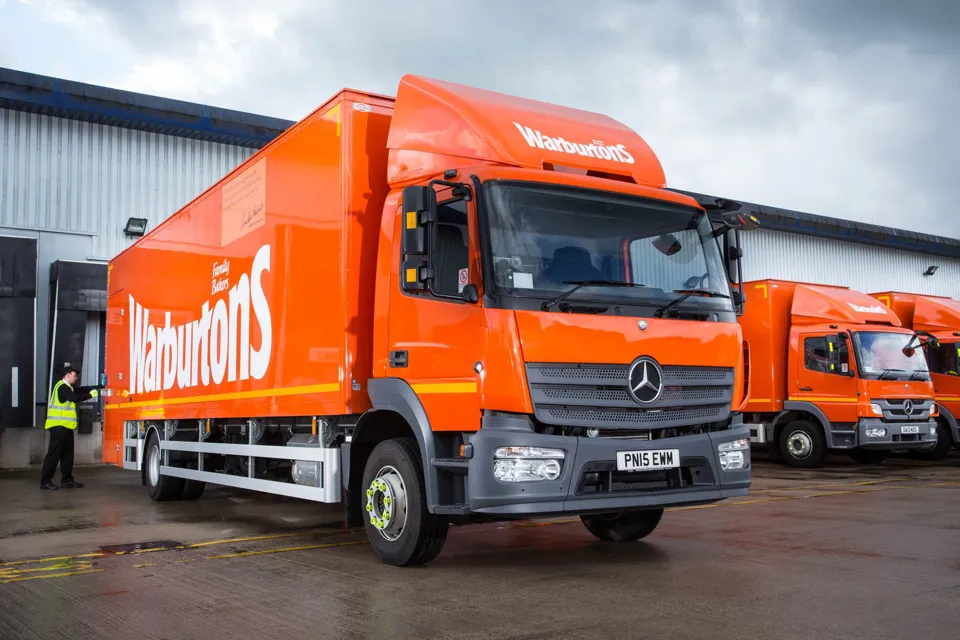Warburtons has been named as the FTA’s fuel efficient operator of the year, which is part of the association’s Logistics Carbon Reduction Scheme (LCRS).
The company cut the diesel consumption of its fleet of 750 distribution vehicles by more than 8%, representing an annual reduction in carbon emissions of 1,719 tonnes.
Warburtons’ fleet of 7.5 and 14-tonne rigid trucks, make 18,000 deliveries per day from 24 depots nationwide.
The company had already taken steps to cut its fuel use, specifying automatic engine cut-off systems on all new trucks to prevent wasteful idling, and choosing automatic transmissions to improve mpg returns.
Its 12 in-house driver-trainers also deliver courses in safe and efficient driving techniques, over and above statutory driver CPC requirements.
It also implemented telematics, which Warbutons said made an important contribution to the company’s fuel savings and carbon reductions.
Called Fleetboard, the telematics were supplied by Mercedes-Benz, and Warburtons use the product on both Mercedes-Benz vehicles and trucks made by other manufacturers.
Mark Sutcliffe, group transport manager at Warburtons, said: “Through this initiative we have not only reduced fuel consumption and carbon emissions but also evolved our culture of continuous improvement in distribution and levels of engagement across our teams.”
The operator used Fleetboard to provide feedback on the performance of each truck and driver on its fleet.
Reports produced information on factors including harsh braking, over-revving, ‘green band’ driving, use of engine and exhaust braking, number of gear changes and speeds, as well as recording the vehicle’s gross weight and the ‘degree of difficulty’ of its route.
Sutcliffe added: “FleetBoard has given us an accurate picture of driving performance throughout the working day, and how driving style impacts on our fuel consumption.
“We focus on the scoring system, which gives drivers marks out of 100 based only on driving style – mpg is not a factor in this calculation – enabling all drivers to be compared equally regardless of their vehicle or their journey.
“In this way we were able to ‘iron out’ differences between individual trucks and routes.
“The project quickly became self-sustaining. The competitive spirit between drivers meant they were all eager to improve their own scores.”

















Login to comment
Comments
No comments have been made yet.